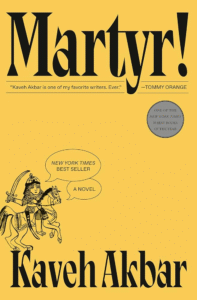Echoes in the Attic: Unpacking Inheritance and Identity in Lorna Sage’s Bad Blood

Lorna Sage’s Bad Blood is not merely a memoir; it is a meticulously crafted excavation of a family’s past, a candid exploration of inheritance, and a poignant coming-of-age story set against the backdrop of post-war Britain. Through a mosaic of vivid anecdotes, sharp observations, and literary allusions, Sage delves into the complexities of her upbringing, dominated by eccentric and often unsettling personalities. The book argues compellingly that family, with its unique blend of charisma and pathology, shapes not just our formative years but casts a long shadow over our adult identities, a legacy both burden and boon.
The Tyranny of Charisma: Grandparents as Forces of Nature
At the heart of Bad Blood are Sage’s grandparents, particularly her flamboyant and contradictory grandfather, a charismatic but profoundly unreliable vicar. He is a figure of immense intellectual energy and boundless appetites, a “word-hoarder” and a “showman” who both fascinated and frustrated those around him. Her grandmother, a more practical but equally strong-willed woman, provides a grounding force, often at the cost of her own desires. Sage paints a vivid picture of a childhood defined by their dramatic interplay, where intellectual curiosity was encouraged but emotional chaos often reigned. This dynamic establishes the central tension of the memoir: the allure of a vibrant, unconventional life versus the psychological toll it exacts.
The Burden of Inheritance: Cycles of Dysfunction
Sage masterfully explores the theme of inheritance, both genetic and psychological. She sees her family’s “bad blood” not as a simple moral failing, but as a complex brew of intellectual brilliance, emotional instability, and a tendency towards self-destruction. The memoir traces how these traits ripple through generations, influencing her mother’s frustrated aspirations and, by extension, Sage’s own early life. The children in the family often inhabit a liminal space, simultaneously charmed by their elders’ eccentricities and burdened by their unspoken traumas. Sage’s unflinching gaze reveals how patterns of behavior, both positive and negative, are passed down, creating a familial echo chamber from which escape is difficult.
Books as Refuge and Weapon: The Power of Literature
Throughout her chaotic childhood, books serve as both refuge and weapon for young Lorna. The house, despite its domestic disarray, is crammed with literature, a testament to her grandfather’s intellectual voracity. For Sage, reading becomes a vital escape, a way to make sense of the bewildering adult world around her, and a pathway to self-definition. Literature offers her a language to articulate her experiences and a mirror in which to find her own reflection. She vividly recounts how books provided solace from the family’s “noisy, argumentative” environment, demonstrating how intellectual pursuits can be a powerful counterpoint to emotional disarray, ultimately shaping her into the literary critic she became.
Forging an Identity: Escape and Embrace
Ultimately, Bad Blood is a story of forging an identity in the shadow of a powerful and peculiar family. Sage’s journey involves both a necessary escape from the confines of her upbringing and an eventual, often reluctant, embrace of its influence. Her decision to pursue an academic career in literature can be seen as a way of channeling her inherited intellectual intensity into a productive and self-defining path. Yet, even in adulthood, the echoes of her “bad blood” persist, informing her perspective and shaping her understanding of the world. The memoir concludes not with a definitive break, but with a nuanced acceptance of the enduring legacy of her family, acknowledging that even the most challenging beginnings contribute to the richness and complexity of a life. Bad Blood is a testament to the power of memoir to illuminate the intricate dance between individual will and the indelible imprints of the past.




















